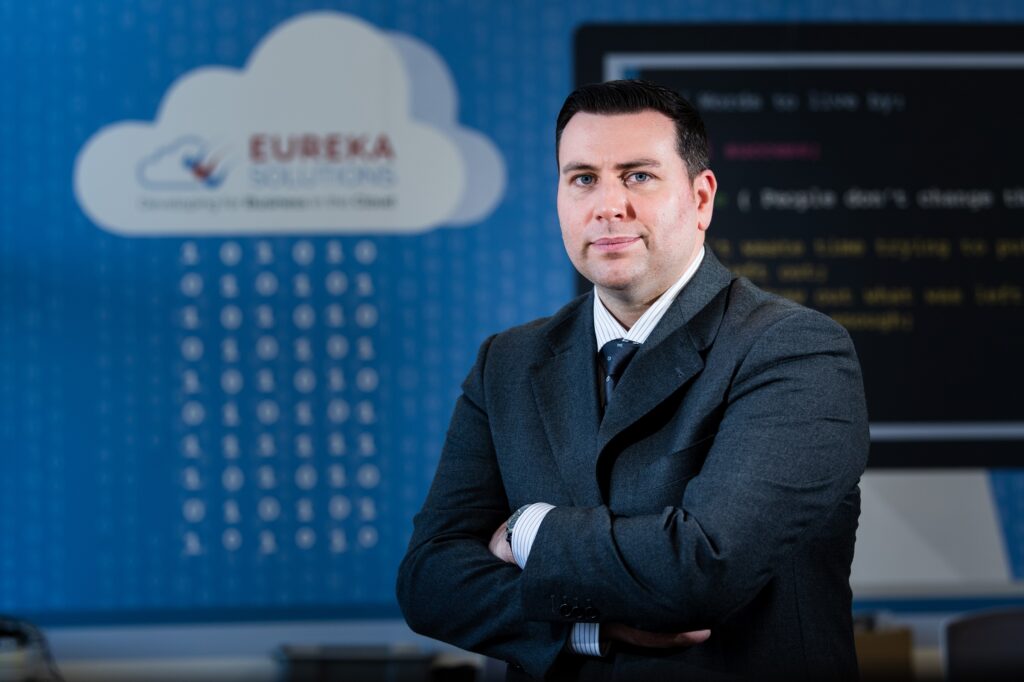SCOTTISH businesses are struggling to recruit accountants with the high-level expertise in blockchain technologies and AI which can supercharge C-suite decision making and increase profitability.
These emerging technologies and advances in the automation of financial planning and analysis have changed the face of modern business finance, placing chartered accountants in a critical central role.
But a dearth of suitably qualified professionals in a candidate-driven market is pushing businesses to consider applicants with the right skills set outside of financial services.
The findings have been highlighted in the seventh Annual Salary Guide into Scotland’s crucial financial service sector from Core-Asset Consulting. The report is a forensic review of current salary levels and a guide to the major developments that professionals need to be aware of.

The accounting and finance section underlines the crucial contribution that blockchain, AI, and BI (Business Intelligence) can make in meeting expectations of internal and external stakeholders.
It’s a view backed by East Kilbride-based cloud technology firm Eureka Solutions, which is witnessing tech-savvy accountants being aggressively headhunted and returning as customers with new brands.
David Lindores, CEO, said: “Cloud-based technology, accessible from any device with a browser has changed company accounting practice forever.
“Huge advantages are at their fingertips – automating the procure-to-pay process, vastly speeding up their month-ends, eliminating paper-based processes and reliable scenario planning to name a few.
“By seeking quality training from the right software partner, company accountants can upskill if they are willing to step away from relying solely on spreadsheets, but those that are not willing to move away from ‘legacy’ tech will be left behind.
“CFOs and CEOs are realising that the finance function can add greater value to an organisation if they spend their time reacting to opportunities and making speedy decisions, where the tech provides accurate data, rather than spending their time checking it and manipulating spreadsheets.”
Rachael O’Neill, Associate Director, Accounting & Finance at Core-Asset, said: “Businesses run on information and the faster the information is received and the more accurate it is, the better.
“What started out as a daring experiment, blockchains now operate with accounting technology at their core, centring on the transfer of assets while maintaining a ledger on financial information.
“The technology is now making a significant impact on the sector – and being able to react nimbly to increased automation of financial information and market trends gives companies an edge.
“The results give both employees and managers the power to accelerate and improve decision making, increasing operational efficiency, pinpointing new revenue potential and identifying market trends, providing real time analytics and financial metrics to internal shareholders or external clients at the click of a button.”
But the report questions whether accountancy professionals are staying ahead – or at least abreast – of advances in technology.
It states: “As we move forward in 2022 and beyond, the accounting and finance market will need individuals that can think internationally, understand complex technical accounting issues and have sound industry reporting standards knowledge, with business analytics and automation skills.
“Many firms already operate with lean finance teams, and this, coupled with arguably an even greater requirement for insightful analysis and reporting, will result in increased workloads for many teams and individuals. Future-thinking business leaders may want to begin by broadening their employee skill sets, training finance professionals to stay up to date with the latest advancements.”
“High on the agenda for many CFOs and CEOs in 2022 will be how to better harness and interpret financial data and there will be a drive towards more strategically-based data analysis positions as firms look to stabilise post-pandemic, plan organic growth or consider sector acquisitions.”
The report acknowledges a perennial demand for newly qualified accountants to five years post-qualified-experience with skill sets in this cohort highly portable and transferable across sectors.
Rachael added: “Tax, financial reporting and audit can be relied upon to be hiring pressure points in most years, and in 2022 this will be no different. A small number of professional practice firms are now offering retention bonuses to staff in these areas with the aim of reducing attrition levels.
“Many firms will struggle to attract applicants with the desired level of technical expertise, and therefore, strategically-focused recruitment strategies will be critical to successfully navigate the candidate-driven market. Businesses which operate in financial services will benefit from considering applicants with skill sets outside of financial services, assuming they can demonstrate exposure to a strong generic accountancy background.”
Core-Asset is Scotland’s leading recruiter in financial services, with access to insights from thousands of candidates and Scotland’s top employers in the sector, which accounts for 7% of Scotland’s GDP.
Its annual Salary Guide is a report produced exclusively on the Scottish employment market which benchmarks salaries and jobs in Scotland. The data and numbers produced in it give a crucial alternative picture to the usual London-centric reports.
Always highly-anticipated, the Salary Guide sets the stall for salary reviews in Scotland’s financial services sector which usually happens in March/April. It sets the expectation for those who are awarding salaries, allowing them to benchmark against other competitor organisations.
Core-Asset Consulting was formed in 2005. Based in Edinburgh, it is now an £14m business employing 22 people and works across the entire financial services sector, from the smallest boutiques to the biggest global players.
Initially the firm carved its reputation in Scotland’s globally-renowned asset management sector. However, the success of its model allowed it to expand across the wider financial services market. It now boasts dedicated accounting, investment operations and finance teams and also works in Scotland’s thriving legal sector.